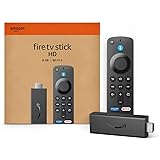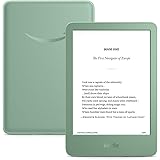In today’s fast-paced society, stress has become an unavoidable part of life. Whether it’s work, studies, family responsibilities, or interpersonal issues, everyone needs effective and scientific methods to manage stress and improve their mental health. In this blog, we will explore proven stress management techniques, practical tips, and science-backed strategies to help you regain peace of mind and improve your quality of life.
What Is Stress and Why Should You Manage It?
Stress is the body’s physiological and psychological response to external stimuli or challenges. While moderate stress can boost motivation and performance, excessive or prolonged stress can negatively impact mental and physical health.
Common Sources of Stress
1. Work Stress: Heavy workloads, job competition, and overtime.
2. Academic Pressure: Exams, academic burdens, and future planning.
3. Interpersonal Issues: Family conflicts, friendships, and relationship struggles.
4. Financial Pressure: Insufficient income, debt problems, and high living expenses.
5. Life Events: Illness, unemployment, or loss of loved ones.
The Harmful Effects of Stress
Prolonged stress may lead to:
• Physical Issues: Headaches, insomnia, and cardiovascular diseases.
• Mental Health Issues: Anxiety, depression, and emotional instability.
• Decreased Quality of Life: Poor work performance and strained relationships.
Learning how to manage stress not only boosts mental health but also enhances overall performance in life and work.
Scientific Methods to Manage Stress
Here are evidence-based stress management techniques to help you cope with stress effectively and boost your mental well-being.
1. Deep Breathing and Meditation
Deep breathing and meditation are simple yet effective relaxation techniques. Research shows that meditation reduces cortisol levels (stress hormone) and calms the mind.
How to Do It:
• Find a quiet place, sit or lie down comfortably.
• Close your eyes, inhale deeply into your abdomen, and slowly exhale. Repeat for 5-10 minutes.
• Focus on your breathing and eliminate distractions.
Recommended Tools:
• Use meditation apps like Calm or Headspace for guided meditation sessions.
2. Time Management for Greater Efficiency
A major source of stress is poor time management, leading to piled-up tasks and anxiety. Therefore, learning time management skills is essential for reducing stress.
Time Management Tips:
• Create a To-Do List: List daily tasks and prioritize them by importance.
• Break Tasks Into Steps: Divide large tasks into smaller, manageable parts.
• Set Time Limits: Allocate specific times for tasks to avoid procrastination.
• Use the Pomodoro Technique: Focus for 25 minutes, then take a 5-minute break to improve productivity.
Recommended Tools:
• Use time management apps like Todoist or Trello.
3. Exercise Regularly to Relieve Stress
Exercise is one of the most natural “stress relievers,” as it promotes the release of endorphins (feel-good hormones) that improve mood.
Types of Exercise for Stress Relief:
• Aerobic Exercise: Running, swimming, and cycling to improve heart health and relieve stress.
• Yoga: Combines breathing and movement to relax the nervous system.
• Strength Training: Releases pent-up stress and enhances self-control.
Suggested Frequency: At least 3 times per week, 30 minutes per session.
Recommended Product:
👉 Buy Garmin Forerunner 55 Smartwatch to monitor your heart rate and workout data for efficient exercise.
4. Improve Sleep Quality to Reduce Fatigue
Poor sleep or insufficient rest worsens stress and prevents your mind and body from recovering.
Tips to Improve Sleep:
• Maintain a Consistent Schedule: Go to bed and wake up at the same time every day.
• Optimize Your Sleep Environment: Keep your bedroom quiet, dark, and cool.
• Avoid Blue Light: Reduce screen time at least 1 hour before bed.
• Practice Relaxation: Try deep breathing or light reading before bed.
Recommended Product:
👉 Buy Fitbit Charge 6 Fitness Tracker to monitor sleep cycles and receive actionable sleep improvement advice.
Diet plays a critical role in stress management. Healthy eating habits can alleviate stress and enhance mental health.
Anti-Stress Foods to Include:
• Omega-3 Fatty Acids: Found in salmon, walnuts, and flaxseeds; helps improve mood.
• Whole Grains: Oatmeal and brown rice provide sustained energy and stabilize emotions.
• Fresh Fruits and Vegetables: Rich in vitamins and minerals that strengthen the immune system.
• Green Tea: Contains L-theanine, which relaxes the nervous system.
Avoid: Excessive sugar, fats, and caffeine, as they can worsen anxiety.
6. Cultivate a Positive Mindset
A positive mindset helps you manage challenges better and reduces the negative effects of stress.
How to Build Positivity:
• Practice Gratitude: Write down 3 things you’re grateful for every day.
• Use Affirmations: Remind yourself, “I can handle this,” or “I am capable.”
• Seek Support: Share your feelings with family or friends for emotional support.
7. Develop Hobbies to Relax Your Mind
Engaging in activities you enjoy can shift your focus and relax your mind.
Recommended Activities:
• Reading: Enjoy the calmness of reading.
• Drawing or Painting: Express emotions creatively.
• Listening to Music: Relax with soothing music.
• Outdoor Activities: Spend time in nature to breathe fresh air and boost your mood.
Seek Professional Help: Counseling and Therapy
If stress becomes overwhelming and self-management techniques don’t work, seeking professional help is the best choice.
• Cognitive Behavioral Therapy (CBT): Helps replace negative thought patterns with constructive ones.
• Talk Therapy: Releases pent-up emotions and helps identify the root cause of stress.
Conclusion
While stress is inevitable, it is manageable with the right strategies. From deep breathing and regular exercise to improving sleep and maintaining a balanced diet, everyone can adopt scientifically proven techniques to alleviate stress and boost mental health.
Don’t let stress control your life—take action today to create a happier and healthier future!



















